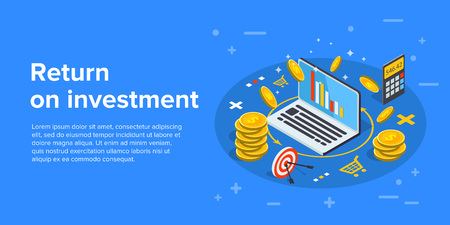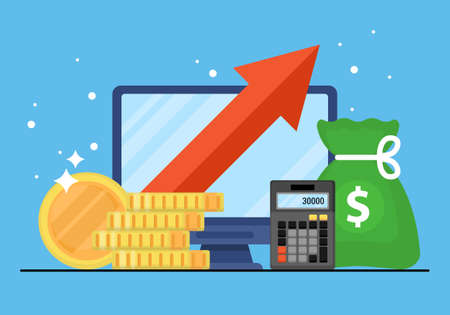1. Optimize Your Credit Utilization Ratio
What Is Credit Utilization and Why Does It Matter?
Your credit utilization ratio is the percentage of your available credit that youre currently using. Its a major factor in your credit score, typically accounting for about 30% of your FICO score. Keeping this ratio low signals to lenders that you manage credit responsibly.
How to Lower Your Credit Utilization Quickly
If your credit utilization is too high, there are a few lesser-known tricks to bring it down fast:
(1) Make Mid-Cycle Payments
Most people pay their credit card bill once a month, but making an extra payment before your statement closing date can reduce your reported balance. This means a lower utilization ratio when the credit bureaus receive your data.
(2) Request a Credit Limit Increase
If you’ve been managing your credit well, you can ask your card issuer for a higher limit. A higher limit with the same balance automatically lowers your utilization percentage.
(3) Spread Out Your Balances
Instead of maxing out one card, distribute balances across multiple cards to keep individual utilization rates lower.
Credit Utilization Impact: A Quick Breakdown
| Utilization Percentage | Impact on Credit Score |
|---|---|
| Below 10% | Excellent – Best for maximizing score |
| 10%-30% | Good – Still positive but room for improvement |
| 30%-50% | Fair – May start affecting score negatively |
| Above 50% | Poor – High risk for lenders, significant score impact |
2. Request a Credit Limit Increase Wisely
One of the fastest ways to improve your credit score is by increasing your credit limit. This strategy helps lower your credit utilization ratio, which is a major factor in determining your score. However, requesting a limit increase needs to be done wisely to avoid potential downsides.
(1) Why a Higher Credit Limit Helps
Your credit utilization ratio is the percentage of your available credit that youre currently using. A lower ratio signals to lenders that you manage credit responsibly. The formula for calculating it is:
| Total Credit Used | Total Credit Limit | Utilization Ratio |
|---|---|---|
| $1,000 | $5,000 | 20% |
| $1,000 | $10,000 (after increase) | 10% |
If your limit increases but your spending remains the same, your utilization ratio drops, which can positively impact your credit score.
(2) When to Request a Credit Limit Increase
The timing of your request matters. Here are some ideal situations:
- Your income has increased: Lenders are more likely to approve an increase if you have higher earnings.
- You have a good payment history: If youve been making on-time payments for several months, banks may see you as a low-risk borrower.
- Your credit score has improved: A better score can make approval easier and may even result in a larger increase.
- You havent requested multiple increases recently: Too many requests in a short time could trigger hard inquiries and potentially hurt your score.
(3) How to Request a Credit Limit Increase Safely
If youre ready to ask for an increase, follow these steps:
- Check Your Current Standing: Review your account to ensure youve made consistent payments and have no outstanding issues.
- Contact Your Issuer: You can typically request an increase online through your bank’s website or by calling customer service.
- Avoid Requesting Too Much at Once: A reasonable increase (e.g., 10-30% of your current limit) is more likely to get approved than an excessive jump.
- Be Prepared for a Hard Inquiry: Some issuers may perform a hard pull on your credit report, which could temporarily lower your score.
(4) What to Do If Your Request Is Denied
If your request is denied, don’t panic. Here’s what you can do next:
- Avoid reapplying immediately: Wait at least a few months before trying again to prevent unnecessary hard inquiries.
- Improve key factors: Focus on making on-time payments, reducing balances, and improving overall credit health.
- Ask why it was denied: Contact the issuer and find out the reason—this insight can help you address potential weaknesses.
A well-timed and strategic credit limit increase can be an easy way to boost your credit score without taking on new debt. Just make sure to use this tactic responsibly!

3. Leverage Authorized User Status
One of the fastest ways to give your credit score a boost is by becoming an authorized user on someone else’s credit account. This strategy allows you to “piggyback” on the positive credit habits of a responsible account holder, helping improve your credit history and score.
How Becoming an Authorized User Works
When you are added as an authorized user, the primary account holder’s credit history for that specific account is reported on your credit file. If they have a long-standing account with a good payment history and low credit utilization, it can positively impact your score.
Key Benefits of Being an Authorized User
| Benefit | Description |
|---|---|
| Improved Credit Age | If the account has been open for many years, it can help extend your average credit age. |
| Positive Payment History | You benefit from the primary account holder’s timely payments. |
| Lower Credit Utilization | If the card has a low balance relative to its limit, it helps lower your overall credit utilization ratio. |
| No Hard Inquiry | You don’t need to apply for new credit, so there’s no hard inquiry affecting your score. |
(1) Choose the Right Account Holder
Select someone with a strong credit history—on-time payments, low utilization, and a long account history. A family member or trusted friend is usually the best choice.
(2) Ensure the Issuer Reports Authorized Users
Not all credit card issuers report authorized users to credit bureaus. Before getting added, confirm that the issuer reports this information so it actually benefits your score.
(3) Monitor Your Credit Report
Once youre added, check your credit report regularly to ensure the account appears and is being reported correctly. If anything seems off, address it immediately with the primary account holder or the issuer.
4. Dispute Errors on Your Credit Report
Why Checking Your Credit Report Matters
Your credit score is based on the information in your credit report. If there are errors, they could be dragging down your score without you even realizing it. By identifying and disputing mistakes, you can potentially see an instant boost.
Common Credit Report Errors to Look For
Not all credit report mistakes are obvious, so it’s essential to review your report carefully. Here are some common errors:
| Error Type | Description |
|---|---|
| Incorrect Personal Information | Name misspellings, wrong addresses, or incorrect Social Security numbers. |
| Accounts That Dont Belong to You | Mistakenly reported accounts that belong to someone with a similar name. |
| Duplicate Accounts | The same account appearing multiple times, making your debt look higher. |
| Outdated Negative Information | Lingering late payments or collections that should have been removed. |
| Incorrect Account Balances or Limits | Mistakes in reported balances or credit limits that impact your utilization ratio. |
(1) How to Get Your Free Credit Report
You’re entitled to a free credit report from each of the three major credit bureaus—Experian, Equifax, and TransUnion—once a year through AnnualCreditReport.com. Reviewing all three ensures you catch any inconsistencies.
(2) Steps to Dispute Errors Effectively
If you find an error, don’t panic. Follow these steps to dispute inaccuracies:
(1) Gather Supporting Documents
If you have records proving the error (e.g., payment receipts, account statements), collect them before filing a dispute.
(2) Contact the Credit Bureau
You can file disputes online through each bureaus website or send a formal letter detailing the mistake.
(3) Reach Out to the Creditor
If the error comes from a lender (e.g., a bank or credit card company), contact them directly as well to correct their records.
(4) Follow Up on Your Dispute
The credit bureau typically has 30 days to investigate. Check back to ensure corrections are made and reflected in your score.
5. Take Advantage of Experian Boost and Other Free Tools
Did you know that some of your everyday payments—like utility bills and streaming subscriptions—can help improve your credit score? Many people overlook this simple hack, but free tools like Experian Boost allow you to get credit for on-time payments that wouldn’t normally be reported.
How Does Experian Boost Work?
Experian Boost is a free tool that connects to your bank account and scans for recurring payments like utility bills, phone bills, and eligible subscription services. Once verified, these payments are added to your Experian credit report, potentially increasing your FICO® Score instantly.
What Payments Can Be Added?
| Category | Examples |
|---|---|
| Utility Bills | Electricity, Water, Gas |
| Telecom Services | Cell Phone, Internet, Cable |
| Streaming Subscriptions | Netflix, Hulu, Disney+ |
(1) Benefits of Using Experian Boost
- No Cost: It’s completely free to use.
- Instant Impact: Your score could increase right away.
- No Risk: Only positive payment history is added—late payments won’t hurt your score.
(2) Other Free Credit-Boosting Tools
Apart from Experian Boost, there are other tools that can help improve your credit:
- UltraFICO: Uses your banking history (such as savings habits and cash flow) to build a stronger credit profile.
- Sesame Cash by Credit Sesame: A debit card that reports positive financial habits to build credit.
- Self Credit Builder Loan: Helps you build credit while saving money at the same time.
(3) How to Get Started with Experian Boost
If you want to take advantage of this easy credit score hack, follow these steps:
- Create an Account: Sign up for a free Experian account.
- Connect Your Bank: Link the bank account where you pay your bills.
- Select Eligible Payments: Choose which recurring payments you want to add.
- See Your Score Update: If eligible payments are found, your FICO® Score may increase instantly.
A Quick Recap
- If youre paying utilities or subscriptions on time, you might as well get credit for it!
- Experian Boost, UltraFICO, and other free tools can provide an instant score boost.
- This method won’t work for every lender since it only affects your Experian report—but its still worth trying!
This simple trick takes just minutes to set up and can make a noticeable difference in your credit score. If youre looking for quick ways to improve your credit, leveraging free tools like Experian Boost is one of the easiest steps you can take today!


